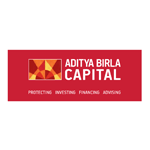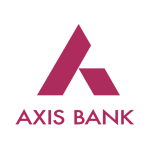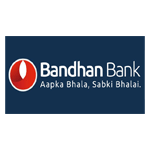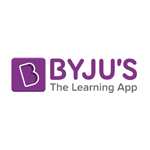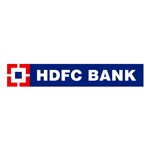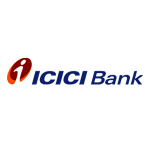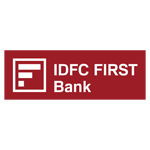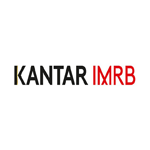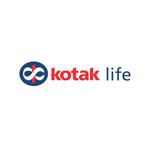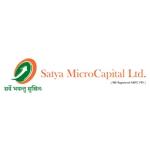- Home
- About Us
- Courses
- NSHM Business School
- BBA (Bachelor of Business Administration)
- BBA – Hospital Management
- BBA – Global Business
- BBA – Sports Management
- BBA – Accountancy, Taxation & Auditing
- BBA – Accountancy, Taxation and Auditing + BSE Certification
- BBA – Banking & Financial Services
- MBA (Master of Business Administration)
- Executive MBA
- MHA (Master of Hospital Administration)
- NSHM Institute of Health Sciences
- Bachelor of Pharmacy
- Bachelor of Pharmacy (Lateral)
- Bachelor of Optometry
- B.Sc. – Psychology
- B.Sc. – Dietetics and Nutrition
- B.Sc. – Medical Lab Technology
- B.Sc. – Radiology & Medical Imaging Technology
- B.Sc. – Critical Care Technology
- B.Sc. – Yoga
- Master of Optometry
- Master of Optometry (BL)
- Master of Pharmacy – Pharmacology
- Master of Pharmacy – Pharmaceutics
- Master of Public Health
- Master of Public Health (BL)
- M.Sc. – Clinical Psychology
- M.Sc. – Dietetics and Nutrition
- M.Sc. – Medical Lab Technology
- M.Sc. – Radiology & Imaging Technology
- M.Sc. – Yoga
- M.Sc. – Yoga (BL)
- NSHM Design School
- NSHM Institute of Computing & Analytics
- NSHM Institute of Engineering & Technology
- B. Tech. – Mechanical Engineering
- B. Tech. – Mechanical Engineering (Lateral)
- B. Tech. in Civil Engineering
- B. Tech. – Civil Engineering (Lateral)
- B. Tech. – Computer Science Engineering
- B. Tech. – Computer Science Engineering (Lateral)
- B. Tech. – Electronics & Communication Engineering
- B. Tech. – Electronics & Communication Engineering (Lateral)
- B. Tech. – Artificial Intelligence and Machine Learning
- B. Tech. – Artificial Intelligence and Machine Learning (Lateral)
- B. Tech. – Electrical Engineering
- B. Tech. – Electrical Engineering (Lateral)
- B. Tech. – Data Science
- B. Tech. – Data Science (Lateral)
- NSHM Institute of Hotel & Tourism Management
- NSHM Institute of Nursing
- NSHM Media School
- NSHM Business School
- Schools & Campuses
- Beyond Academics
- Admissions
- News & Events
- Contact Us
Overview

A three-year BBA in Banking and Financial Services degree course includes the study of business management and related fields. It is a professional degree where theoretical ideas like management information systems, the basics of financial law, and marketing fundamentals are taught and supplemented by practical experience through case studies, industry visits, presentations, and summer internships. This curriculum is designed to give students specialised knowledge of banking and finance sector operations in addition to knowledge of basic management concepts.
Program Education Objective
- The main objective of this degree course is to provide in-depth knowledge of Banking & Finance to the students of different domains such as commerce, management, economics, etc. with practical training and necessary insights required to get a job in the Banks and other financial institutions.
- Enhancing student’s ability in dealing short-term dealing with day-to-day working capital decision; and also longer-term dealing, which involves major capital investment decisions and raising long-term finance
Career Opportunities
- Financial consultant
- Financial analyst
- Treasurer
- Financial manager
- Investment analyst
- Tax assistant
- Management analyst
Core Areas
Core Curriculum
Finance
Basics of Accounts
Meaning and scope of Accounting, Basic Accounting Concepts and Conventions, Objectives of Accounting, Accounting Transactions, Adjustments, Receipts and Payments Account, Income & Expenditure Account and Balance Sheet of Non Trading Organizations, Bank Reconciliation Statement.
Financial Management
Financial system, Financial Assets, Financial Intermediaries, Financial Markets, Classification, Components of Financial Market, Financial Instruments, Multiplicity of Financial Instruments, Money Market and Capital Market and their Features, Importance of Money Market, Composition of Money Market, Money Market Instruments, Features of Indian Money Market.
Derivatives
Forward contracts, Limitations of forward markets, pay-offs, Forward Rate Agreement (FRA) and Forward Foreign Exchange Contract, Introduction to futures, Stock Futures, Index futures, Commodity Futures and Currency Futures Distinction between futures and forwards contracts, Call and Put Option- American and European Option- Put Call Parity, Types of Credit Derivatives- Types of Swap-Credit Default Swaps – Collateralized Debt Obligations(CDO).
Economics
Wealth, Welfare and Scarcity Views on Economics, Elasticity of
Demand and supply, Law of Diminishing Marginal utility, Law of Variable Proportion, Pricing Policy, Theoretical Framework of Business Environment, Socio-Cultural Environment.
Banking
Banking Theory Law and Practice
DRI Scheme, Priority Sector Lending, Nationalisation of Banks and its Objectives, Micro- Finance, RRBs, Agent & Principal, Trustee & Beneficiary, Debtor and Creditor, Special Relationship – Rights of a Banker – Right of General Lien, SWIFT, Green Channel- Cheque Truncation System, Technology driven developments – ATM, Debit cards, Credit cards, Mobile banking, Internet banking.
Merchant Banking
Trends in Merchant Banking in India – SEBI & Merchant Banking, features, scope and importance of venture capital, Nitin Desai committee on venture capital, Angel investment.
Business Taxation
Cannons of Taxation, Person, Assesse, Income, Previous Year, Assessment Year, Gross Avoidance, Planning, Exemption, Planning, Exemption, Deduction, Rebate, Relief, Residential Status and Tax Incidence.
Marketing of Banking Services
Types of banking services, Features, Uses, Derivatives, Securities market, Modern banking.
Micro Finance Operations
Role and importance of Microfinance. Introduction to the financial sector for the poor and the disadvantaged, Difference between conventional finance and microfinance, Principles of microfinance- institutional structures and delivery mechanisms, Enforcement and savings, individual lending, group lending with joint liability.
Strategic Management
Strategic thinking Vs Strategic management Vs Strategic planning, Meaning of strategic management, concept of strategy, policy and strategy, strategy and tactic, Strategy and strategic plan, Nature of strategic plan, nature of strategic decisions, approaches to strategic decision making.
International Business
Principles of BOP Accounting, Components of BOP, Significance of ‘Deficit’ &‘ Surplus’ in BOP, India’s BOP and Economic Performance, Capital Mobility and Capital Account Convertibility, Bretton Wood System, Present Day Currency Regimes, Birth of EMU and EURO, Role of IMF, IBRD, WTO.
Investment Management
Risk and Return- Different types of Risk measurement of Risk and Return of single security – Beta of Security, Financial Instruments, Overview of Indian Capital Market, Brief ideas on portfolio management, ideas on speculation, hedging, arbitraging.
Financial Markets and Instruments
Money Market and Capital Market and their Features, Objectives, Importance of Money Market, Composition of Money Market, Money Market Instruments, Features of Indian Money Market.
Values and Ethics
Corporate Governance and Business Ethics
Understanding the concept of Corporate Governance, Holistic Approach for Managers in Decision Making, Professional ethos and code of professional ethics.
Human Behaviour at Work
Organisational Behaviour-concepts- determinants- challenges and opportunities- Organizational Behaviour Models- Diversity in Organizations, Individual versus group decision making- Work Teams Behaviour -Communication and Feedback- Transactional Analysis-Johari Window.
Programme Type - UG
Duration - 3 or 4 years
Minimum Eligibility - Any Stream 10+2 or from a Recognised School Board.
Degree Awarded By -





